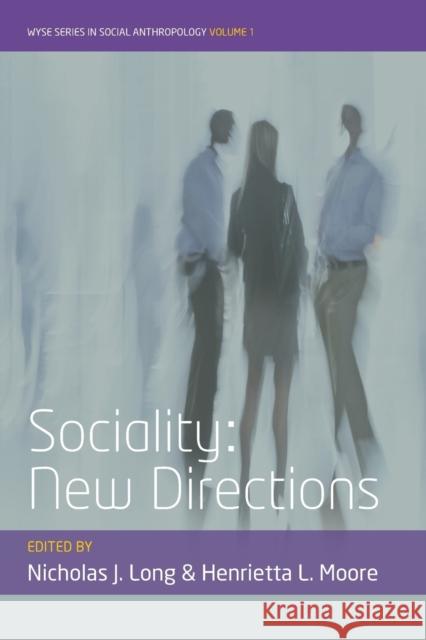Sociality: New Directions » książka
Sociality: New Directions
ISBN-13: 9781782386667 / Angielski / Miękka / 2014 / 228 str.
Sociality: New Directions
ISBN-13: 9781782386667 / Angielski / Miękka / 2014 / 228 str.
(netto: 129,58 VAT: 5%)
Najniższa cena z 30 dni: 135,22
ok. 22 dni roboczych.
Darmowa dostawa!
"An ambitious book that aims to put both the concept and changing empirical status of sociality at the center of the agenda of anthropology and the social sciences more broadly... The contributions are all at a high level." - Webb Keane, University of Michigan The notion of 'sociality' is now widely used within the social sciences and humanities. However, what is meant by the term varies radically, and the contributors here, through compelling and wide ranging essays, identify the strengths and weaknesses of current definitions and their deployment in the social sciences. By developing their own rigorous and innovative theory of human sociality, they re-set the framework of the debate and open up new possibilities for conceptualizing other forms of sociality, such as that of animals or materials. Cases from Asia, Africa, the Americas and Europe explore the new directions of human sociality, illuminating how and why it is transformed when human beings engage with such major issues as economic downturn, climate change, new regimes of occupational and psychological therapy, technological innovations in robotics and the creation of new online, 'virtual' environments. This book is an invaluable resource, not only for research and teaching, but for anyone interested in the question of what makes us social.
"An ambitious book that aims to put both the concept and changing empirical status of sociality at the center of the agenda of anthropology and the social sciences more broadly... The contributions are all at a high level." · Webb Keane, University of MichiganThe notion of sociality is now widely used within the social sciences and humanities. However, what is meant by the term varies radically, and the contributors here, through compelling and wide ranging essays, identify the strengths and weaknesses of current definitions and their deployment in the social sciences. By developing their own rigorous and innovative theory of human sociality, they re-set the framework of the debate and open up new possibilities for conceptualizing other forms of sociality, such as that of animals or materials. Cases from Asia, Africa, the Americas and Europe explore the new directions of human sociality, illuminating how and why it is transformed when human beings engage with such major issues as economic downturn, climate change, new regimes of occupational and psychological therapy, technological innovations in robotics and the creation of new online, virtual environments. This book is an invaluable resource, not only for research and teaching, but for anyone interested in the question of what makes us social.











